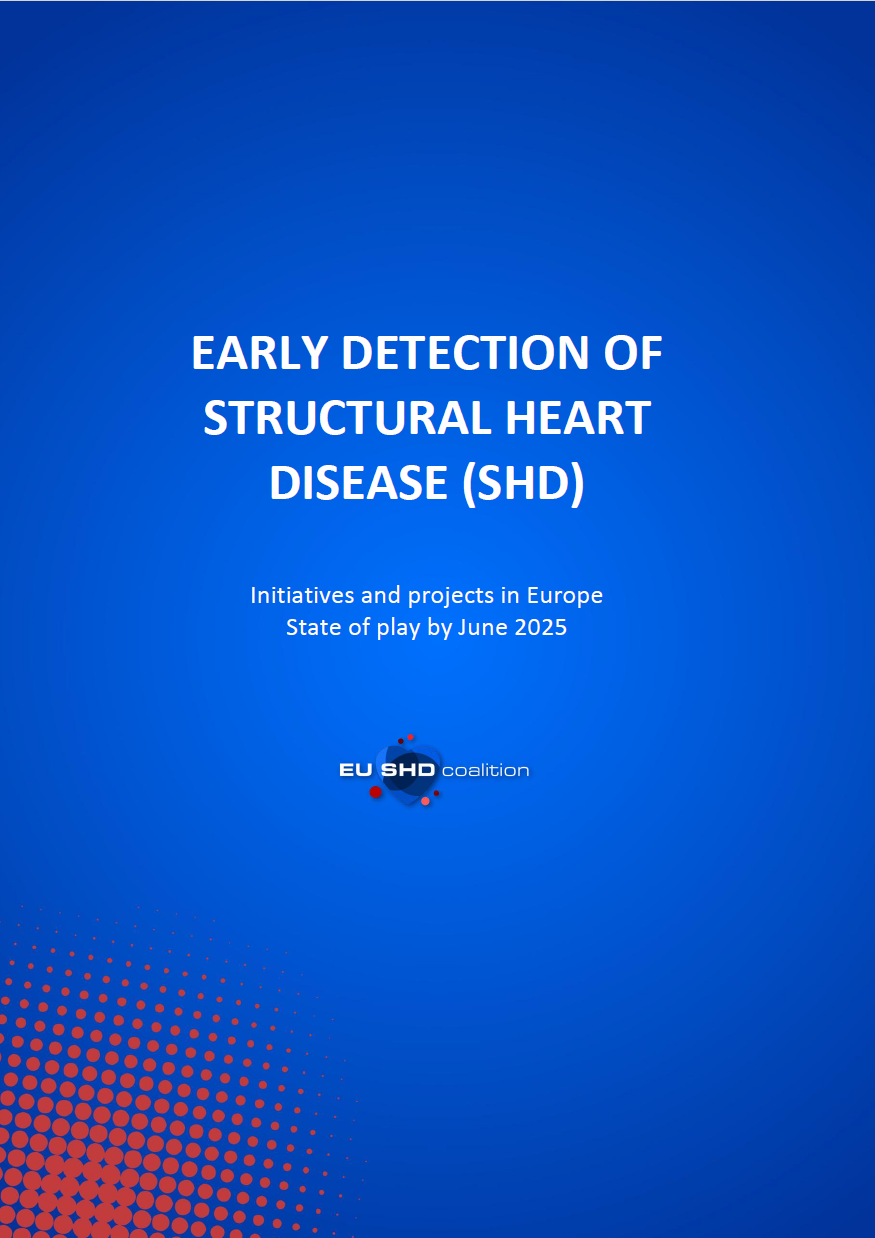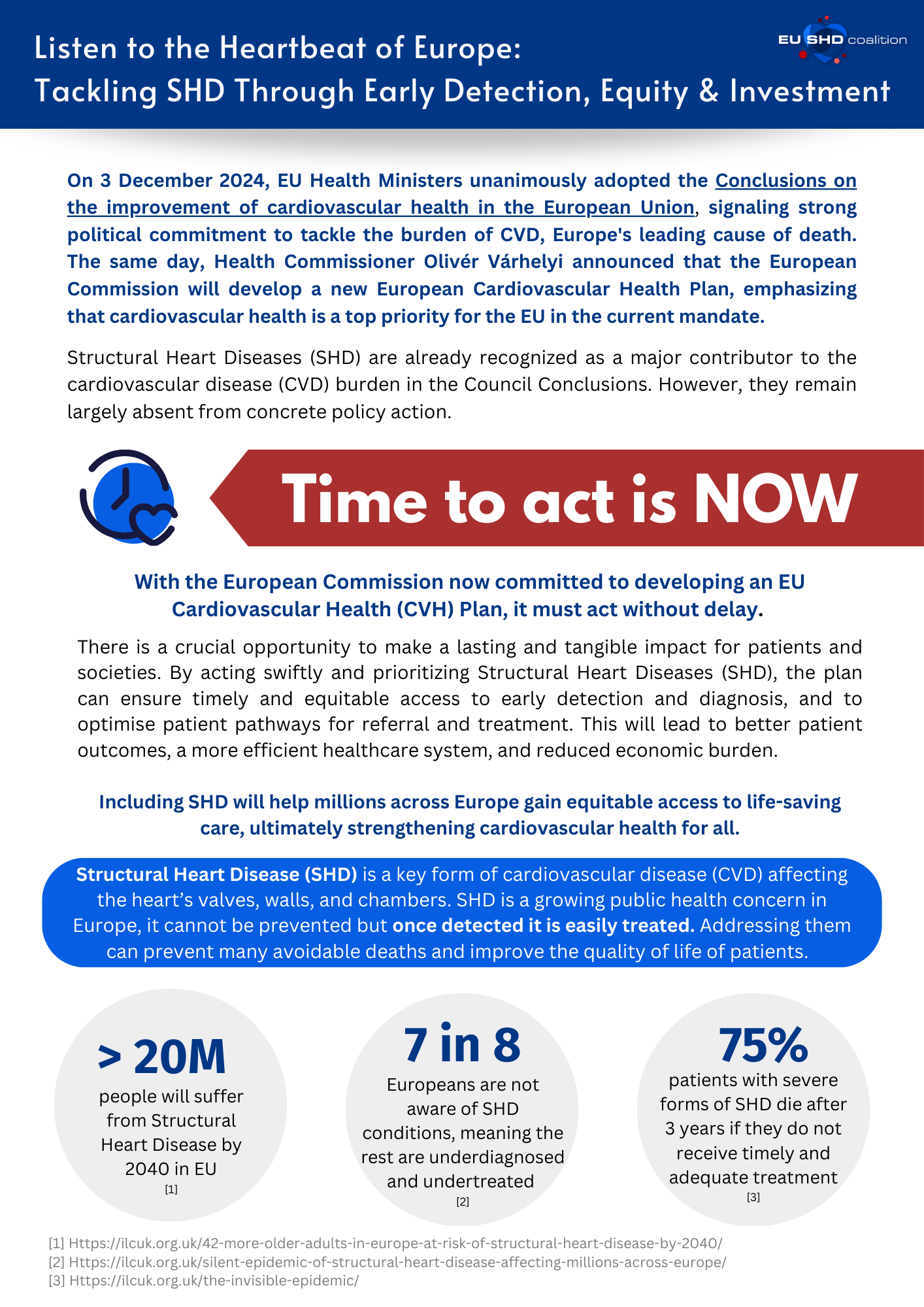With Europe’s rapidly ageing population comes a greater increase in age-related conditions, such as structural heart disease. Most structural heart diseases can be treated, enabling people to continue contribute to society, the wider economy, and live actively and healthily.
Equal access to diagnosis, treatment and care of age-related diseases such are SHD are instrumental to achieve the objectives, but evidence confirms that institutionalized age discrimination, or ageism, often act as a barrier. Ageism can go from not recognizing and detecting structural heart disease, to not treating the disease, or – at its worst – leading to devaluing the lives of older citizens.
You can download the latest report on barriers into the detection, treatment and care of structural heart diseases here. The executive summaries are also available in French, German, Italian and Spanish.
The case for early detection of structural heart disease: what needs to happen to implement SHD screening programs in europe
Our Calls to Action directed at political decision-makers in Europe
The Coalition is calling on the EU Commission and Member States to drive an EU Joint Action funded by EU4Health to:
* Joint Actions are a type of funding instrument that came about under the third EU Health Programme 2014-2020. They encourage and support cooperation between Member States to improve the health policies that benefit their citizens.
Joint Actions are mechanisms of cooperation which allow a ‘competent authority’ to participate in the achievement of its goal. A competent authority is a Member State’s or participating country’s authority responsible for health or a specific health topic, or any other authority on which that competence has been conferred. In light of the additional recognition for civil-society participation, competent authorities are tasked with identifying and selecting civil society organisations active at EU level that can make the most valuable contribution to the action. Nominated organisations will be invited to join the action as collaborating partners and/or participate in advisory structure.








